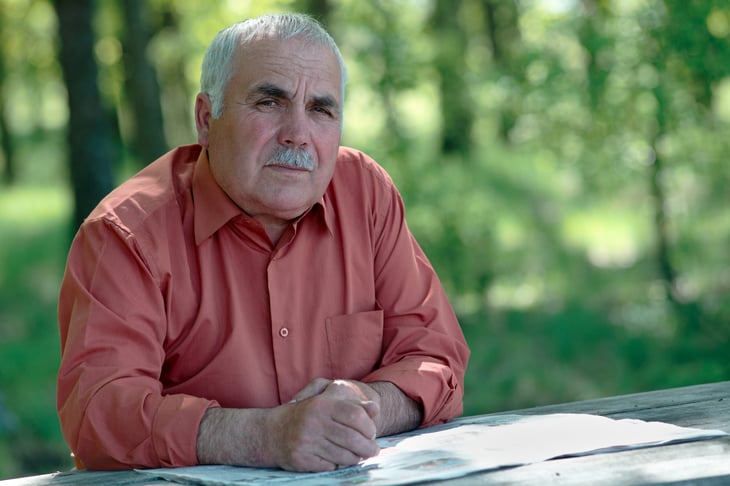
Most of us spend decades working and dreaming of a day when we can retire. But when we finally arrive at our post-work destination, it’s not unusual to find a world of surprises.
While some of these revelations can be pleasant, others are more sobering. Knowing what to expect in advance can help you prepare for — and adjust to — life in your golden years.
Following are some hard truths you should know before you retire.
1. Medicare won’t be free

After all those years of paying Medicare FICA taxes from your paycheck, you may dream of the day when Uncle Sam picks up the tab for your medical care. But that is no dream — it’s a fantasy.
Alas, you will pay for part of the federal health insurance program for folks age 65 and older. Medicare Part A (which primarily covers hospital costs) is indeed free for most people, but you will pay a premium for Medicare Part B (outpatient services) and any supplemental plans you opt to buy.
And don’t think deductibles, copays and coinsurance will be a thing of the past, because they will continue.
For more on the program’s shortcomings, check out “Medicare Will Not Cover These 10 Medical Costs.”
2. Social Security won’t go very far

Millions of Americans rely on Social Security as the cornerstone of their retirement. Among “elderly” Social Security beneficiaries, 37% of men and 42% of women receive 50% or more of their income from Social Security, according to the Social Security Administration.
That is pretty startling when you consider that the average retiree’s Social Security monthly benefit is a paltry $1,837 — just $22,044 a year. You can get by on such a modest amount. Millions of American retirees do just that. But do you really want to?
3. You will wish you had saved more

When you are in your 20s and 30s, retirement feels a million years away. Even in your 40s and 50s, you might imagine you still have plenty of time to catch up.
While it is never too late to save for your golden years, there is a pretty good chance that once you finally retire, you will regret not saving early and more often.
The Transamerica Center for Retirement Studies has found that 78% of retirees wish they had saved more before quitting work.
As Matt Stephens, an adviser with AdvicePoint in Wilmington, North Carolina, told Reuters about the retirees he counsels:
“The biggest regret I hear over and over is that they didn’t start investing sooner.”
4. Housing will remain your biggest expense

Many retirees dream of paying off their mortgage so they will be free to spend money on travel and other activities. But the reality is that housing likely will remain the biggest expense in your budget for as long as you live.
U.S. households led by someone age 65 or older spent an average of $20,362 on housing in 2022, as we detail in “Here’s How Much Retiree Households Spend in a Year.” That is easily more than these households spent in any other expense category.
5. Your dreams may not match reality

It’s fun to imagine retirement as an endless loop of trips to Europe and leisure outings with new friends. But once you get to your golden years, things likely will be different, according to findings from the Society of Actuaries.
When pre-retirees think about retirement, they imagine they will do the following at least fairly often:
- Exercise: 88%
- Visit children and grandchildren: 79%
- Engage in hobbies: 76%
- Travel: 74%
- Participate in social activities: 69%
However, the reality of retirement is different. Here are the percentages of retirees who actually engage in those activities at least somewhat often:
- Exercise: 68%
- Visit children and grandchildren: 65%
- Engage in hobbies: 54%
- Travel: 58%
- Participate in social activities: 49%
6. You may spend more than you expect

A Global Atlantic Financial Group survey found that 39% of retirees spend more in retirement than they had anticipated before leaving work.
That reality means your retirement dreams may need some tweaking once you enter post-work life, says Paula Nelson, president of retirement at Global Atlantic, in a press release:
“Many Americans adjust their lifestyles and cut spending once they see how quickly costs can add up in retirement.”
7. Divorce will be a serious threat

In the past, retirees were expected to stay married until death parted them. But that is no longer the case. The rate of divorce among those over 50 has roughly doubled since the 1990s.
The phenomenon — known as “grey divorce” — is largely a result of aging baby boomers, who were far more likely to have been divorced already than couples in earlier generations, according to Pew Research Center. The organization concludes:
“Their marital instability earlier in life is contributing to the rising divorce rate among adults ages 50 and older today, since remarriages tend to be less stable than first marriages.”
8. You might not work — even if you planned to

Among pre-retirees who are 50 or older, 72% say they want to work during retirement, according to the findings of “Work in Retirement: Myths and Motivations,” a joint study by Merrill Lynch and Age Wave.
However, far fewer actually follow through on that goal. Just 32% of seniors age 65-69 actually work, according to a report from the Federal Reserve Bank of Minneapolis.
9. If you’ve never volunteered before, you won’t start in retirement

About 90% of Americans say they would like to do volunteer service for someone or some cause that needs their help, but just 25% actually do so, according to the Stanford Center on Longevity.
When asked why they don’t follow through on the wish to help, Americans most commonly cite a lack of free time. Yet, retirees — with plenty of time on their hands — do not volunteer at rates that are any higher than those of workers.
And among people who did not volunteer during their working years, just one-third finally begin volunteering during retirement.
10. Retirement can be especially lonely for single men

In some ways, retirement is more challenging for women. Because they live longer than men, they will have to stretch the funds from their nest eggs over a longer period. To make matters worse, women generally start with less in retirement savings than men do.
But women who are single have one big advantage over their male counterparts: They are less likely to be lonely.
Just 48% of retired men who live alone say they are very satisfied with the number of friends they have, according to an analysis of Pew Research Center survey findings.
However, a robust 71% of women who live alone are satisfied with the number of friends they have.
11. Health issues likely will catch up with you

Retirement is supposed to be a time of relaxation. But the truth is that quitting work is more closely linked with increased illness.
Research from the Institute of Economic Affairs finds that retirement increases the chances of clinical depression by about 40% and of having at least one diagnosed physical illness by 60%.
Such sobering numbers underscore why many people planning for retirement would benefit from opening a health savings account and stashing as much cash as possible into that HSA, assuming they are eligible for one.
12. You may be disappointed — at first

Nearly one-third of recent retirees — 28% — say life is worse in retirement than it was during their working years, according to a Nationwide Retirement Institute survey.
However, hang in there. As your retirement rolls on, you are likely to feel happier. The Pew Research Center found that 45% of adults 75 and older believe life has turned out better than they expected.
Just 5% say it has turned out worse.





Add a Comment
Our Policy: We welcome relevant and respectful comments in order to foster healthy and informative discussions. All other comments may be removed. Comments with links are automatically held for moderation.